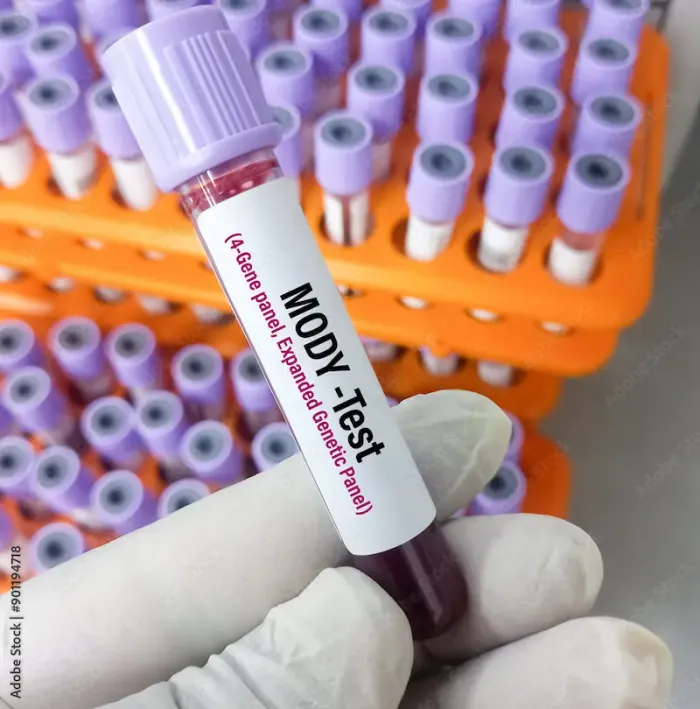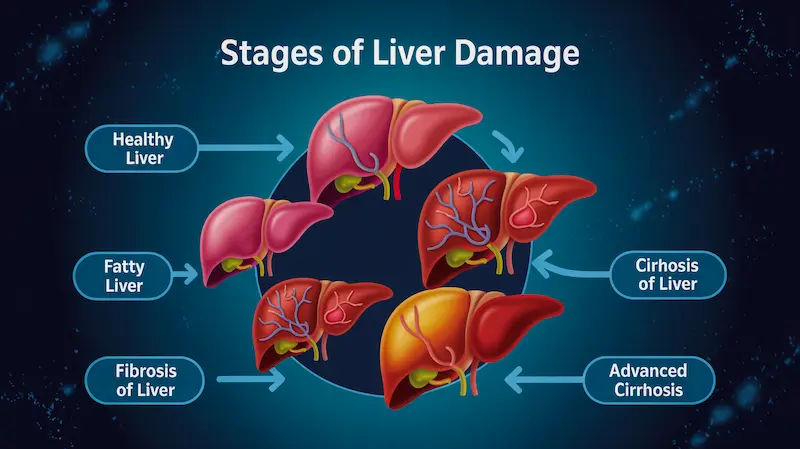MODY Diabetes Overview and Treatment Options
Know about the MODY diabetes, what it is, key facts, symptoms, causes, difference between type 1 & type 2, living with it and prevention of it.

Written by Dr. Shaik Abdul Kalam
Reviewed by Dr. Rohinipriyanka Pondugula MBBS
Last updated on 13th Jan, 2026

Living with diabetes can be challenging, but understanding your condition is the first step toward managing it effectively. If you or a loved one has been diagnosed with Maturity-Onset Diabetes of the Young (MODY), you may have questions about what it means and how to handle it. This guide will walk you through the basics of MODY diabetes, its symptoms, causes, and treatment options, all explained in simple, easy-to-understand terms.
What is MODY Diabetes?
MODY is a rare form of diabetes that is often mistaken for Type 1 or Type 2 diabetes. Unlike Type 1 diabetes (which is autoimmune) or Type 2 diabetes (linked to insulin resistance), MODY is caused by a genetic mutation that affects how the body produces and uses insulin.
Consult the Best Endocrinologist for Personalised Advice
Key Facts About MODY:
The key facts include:
• Genetic Cause: MODY runs in families, meaning if a parent has it, there’s a 50% chance their child will inherit it.
• Early Onset: Unlike Type 2 diabetes (which usually appears in adulthood), MODY often develops in childhood, teens, or young adults.
• Milder Symptoms: People with MODY may not always need insulin right away and can sometimes manage their condition with oral medications or diet changes.
Symptoms of MODY Diabetes
MODY symptoms can be subtle and vary from person to person. Some common signs include:
• High blood sugar levels (detected in routine tests)
• Frequent urination
• Increased thirst
• Fatigue
• Blurred vision
• Slow-healing wounds
Because these symptoms overlap with other types of diabetes, genetic testing is often needed for a confirmed diagnosis.
What Causes MODY?
MODY is caused by changes (mutations) in specific genes that control insulin production. There are several subtypes of MODY, each linked to a different gene.
The most common types are:
• MODY 2 (GCK gene): Causes mildly elevated blood sugar but rarely requires treatment.
• MODY 3 (HNF1A gene): Can lead to progressive insulin deficiency and may need medication.
• MODY 1 (HNF4A gene): Similar to MODY 3 but less common.
If diabetes runs in your family and multiple generations have been affected at a young age, genetic testing can help confirm MODY.
How is MODY Different from Type 1 and Type 2 Diabetes?
Feature |
How is MODY Diagnosed?
Since MODY is often misdiagnosed as Type 1 or Type 2 diabetes, doctors use specific criteria to identify it:
1. Family History: Diabetes in multiple generations.
2. Young Age of Onset: Diagnosed before age 25-30.
3. Genetic Testing: Confirms the specific gene mutation.
If you suspect MODY, consulting an endocrinologist and getting genetic testing can provide clarity.
Treatment Options for MODY
Treatment depends on the MODY subtype, but common approaches include:
1. MODY 2 (GCK Mutation)
• Usually does not require medication.
• Blood sugar levels are mildly elevated but stable.
• Regular monitoring is enough.
2. MODY 3 (HNF1A Mutation)
• Sulfonylureas (oral medication): Often very effective in controlling blood sugar.
• May eventually need insulin if the pancreas produces less insulin over time.
3. Lifestyle Management for All MODY Types
• Balanced Diet: Focus on whole grains, lean proteins, and fibre-rich foods.
• Regular Exercise: Helps maintain healthy blood sugar levels.
• Monitoring Blood Sugar: Keeping track helps adjust treatment as needed.
Unlike Type 2 diabetes, weight loss is not a primary treatment for MODY since it’s genetic, not lifestyle-related.
Living Well with MODY Diabetes
While MODY is a lifelong condition, many people manage it successfully with the right care. Here are some tips:
• Stay Informed: Learn about your specific MODY type.
• Regular Check-ups: Work with your doctor to adjust treatment as needed.
• Family Screening: Since MODY is hereditary, relatives should consider testing.
When to See a Doctor?
If you or your child:
• Have unexplained high blood sugar.
• Have a strong family history of diabetes at a young age.
• They are diagnosed with diabetes but don’t fit typical Type 1 or Type 2 patterns.
Consider consulting an endocrinologist for further evaluation.
Final Thoughts
MODY diabetes is different from other types, but with the right diagnosis and treatment, it can be managed effectively. If diabetes runs in your family, getting tested early can help you take control of your health. Remember, you’re not alone. Medical professionals are here to guide you every step of the way.
Consult the Best Endocrinologist for Personalised Advice
Consult the Best Endocrinologist for Personalised Advice

Dr. Mary Susan K S
General Physician/ Internal Medicine Specialist
13 Years • MBBS, MD INTERNAL MEDICINE
Bengaluru
Apollo Clinic, Sarjapur Road, Bengaluru
(25+ Patients)

Dr. Anand Ravi
General Physician
2 Years • MBBS
Bengaluru
PRESTIGE SHANTHINIKETAN - SOCIETY CLINIC, Bengaluru

Dr. Nilotpal Mitra
General Physician/ Internal Medicine Specialist
21 Years • MBBS, PGDGM ( Geriatric Medicine), ACMDC (an Advance course in Diabetes and cardiovascular diseases from PHFI and WHF )
Kolkata
MCR SUPER SPECIALITY POLY CLINIC & PATHOLOGY, Kolkata
(50+ Patients)
Dr. Mohammad Sharfraz Ahamed
Endocrinologist
6 Years • MD GENERAL MEDICINE(KURNOOL MEDICAL COLLEGE), DM Endocrinology(SKIMS, Deemed university)
Nellore
Apollo Speciality Hospitals, Nellore

Dr. Shiva Madan
Endocrinologist
10 Years • MBBS , MD (General medicine) , DM (Endocrinology)
Bikaner
Sushma diabetes and Endocrine center, Bikaner
Consult the Best Endocrinologist for Personalised Advice

Dr. Mary Susan K S
General Physician/ Internal Medicine Specialist
13 Years • MBBS, MD INTERNAL MEDICINE
Bengaluru
Apollo Clinic, Sarjapur Road, Bengaluru
(25+ Patients)

Dr. Anand Ravi
General Physician
2 Years • MBBS
Bengaluru
PRESTIGE SHANTHINIKETAN - SOCIETY CLINIC, Bengaluru

Dr. Nilotpal Mitra
General Physician/ Internal Medicine Specialist
21 Years • MBBS, PGDGM ( Geriatric Medicine), ACMDC (an Advance course in Diabetes and cardiovascular diseases from PHFI and WHF )
Kolkata
MCR SUPER SPECIALITY POLY CLINIC & PATHOLOGY, Kolkata
(50+ Patients)
Dr. Mohammad Sharfraz Ahamed
Endocrinologist
6 Years • MD GENERAL MEDICINE(KURNOOL MEDICAL COLLEGE), DM Endocrinology(SKIMS, Deemed university)
Nellore
Apollo Speciality Hospitals, Nellore

Dr. Shiva Madan
Endocrinologist
10 Years • MBBS , MD (General medicine) , DM (Endocrinology)
Bikaner
Sushma diabetes and Endocrine center, Bikaner




